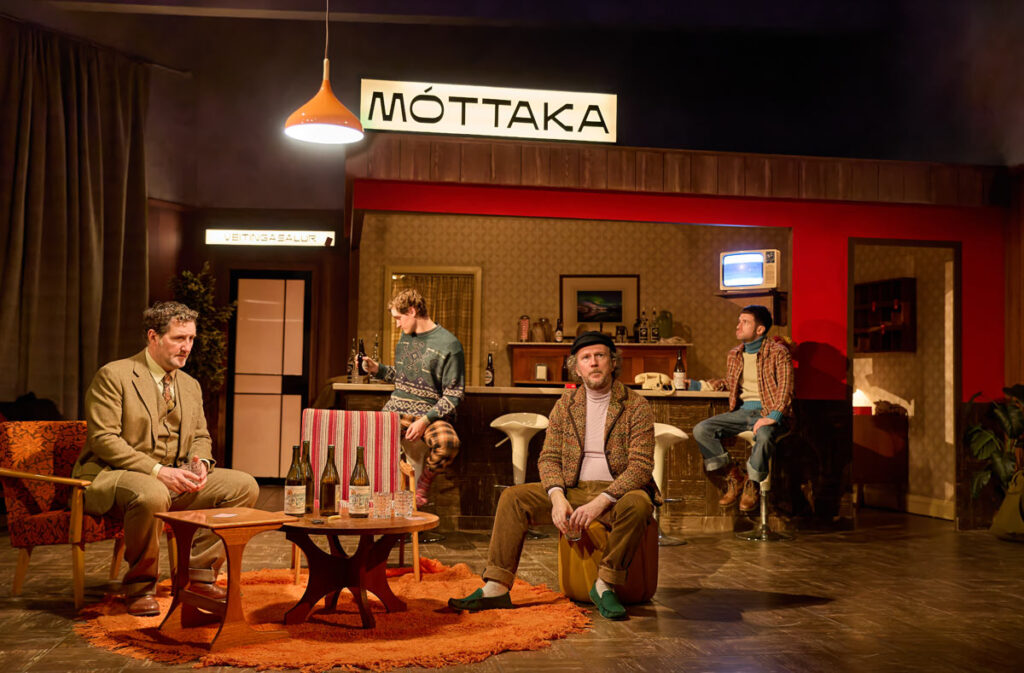Hampstead Theatre, London – until 23rd November 2024
Reviewed by Celia Armand Smith
4****
It’s February 1976, and a fishing trawler called the Graham Greene has capsized off the coast of Iceland with loss of life. This new play from Richard Bean is set against the brutal backdrop of the fishing industry in 1970s Hull, and the Icelandic vote on banning foreign fishing within 200 miles of its coastline. Donald Claxton (John Hollingsworth) has taken over the family business from his father and oversees a large fleet of fishing trawlers (including the Graham Greene) navigating treacherous waters. After hearing the news of the sinking of the ship, he embarks on the “widows’ walk”, where he must visit the grieving households of lost fishermen with strict instructions regarding walking, tea, eye contact, and breaks. While sitting grimly in his office checking the docks through a darkened window, he contends with the news, as well as his grumpy father (Paul Hickey), an edgy young vicar (Matthew Durkan), a skipper who isn’t very good at catching fish (Adam Hugill), and a fishwife who wishes bad things on her husband (Laura Elsworthy). With some external encouragement and a heavy feeling of guilt and responsibility, Claxton flies out to Reykjavik to go and bring the remaining members of the Graham Greene home.
Act one takes place in Anna Reid’s fantastically atmospheric office set with large windows overlooking the dock, helping to create a vivid image of the industry, the town and those who exist within it. In act two we are transported to a more colourful 1970s hotel foyer in Iceland, where angry Jack Jopling (Matthew Durkan) and his frostbitten finger, Quayle (Paul Hickey) the folkloric mariner, Baggie (Matt Sutton) who is awaiting news from his pregnant wife, and the lovely Snacker (Adam Hugill) are waiting on land to return to Hull. They are all being watched over by Enhildur (Sophie Cox), the somewhat reluctant hotel owner. Joined in the hotel by Claxton, the group tell tales of the sea, myth and legend, and ghost stories. Where the first act is slow and pensive, dwelling on the transience of life and the brutality and uncertainty of an industry that relies on the sea, the second act is more comedic and pacey. Both halves are equally brilliant in their storytelling despite some strange twists and turns in the narrative.
Under the direction of Emily Burns, the performances are first-rate. Hollingsworth’s performance as Claxton is charming and thoughtful with an edge of sleaze. The rowdy group of sailors offer the other side of the employee/employer divide. Casual labourers with the knowledge that at any moment their lives could end in the icy depths of the North Sea, but with huge heart and a few laughs along the way. “Reykjavik” is a sweetly melancholic portrait of the fishing industry and the community at the centre of it. It’s heartfelt and informative, and most of all extremely enjoyable.

